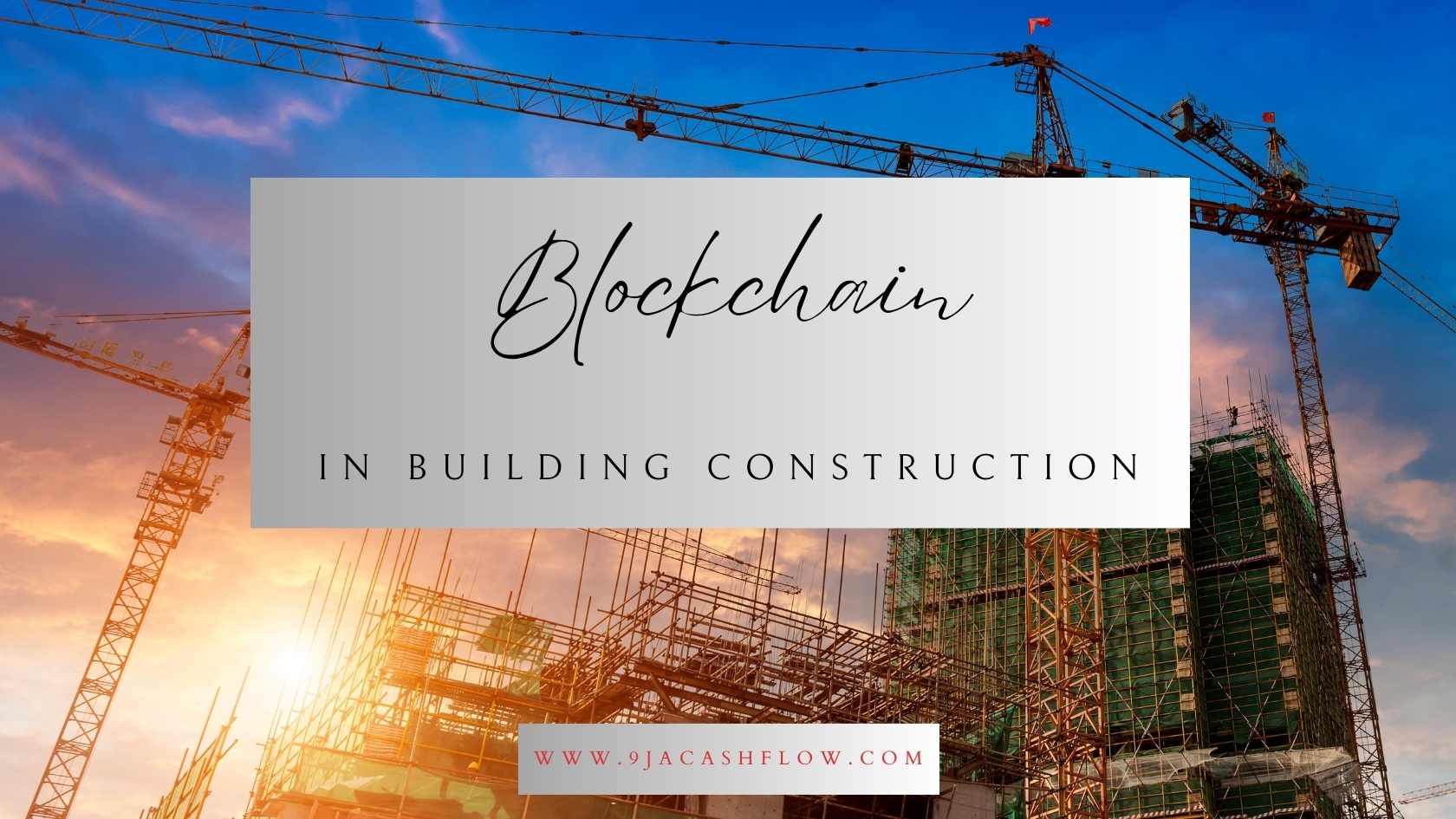In recent years, blockchain technology has been making waves across various industries such as banking and finance, supply chain management, healthcare, identity verification, insurance, and more. The field of real estate and building construction is no exception to this transformative trend.
This innovative technology, initially recognized for its association with cryptocurrencies like Bitcoin, is now finding practical applications in enhancing transparency, efficiency, and security within the construction sector. Let’s delve into some real-life use cases of how blockchain will shape the future of building construction in Nigeria.
1. Supply Chain Management and Material Tracking:
One significant challenge in construction projects is tracking the origin and movement of building materials, which can impact project timelines and quality. Blockchain can provide a transparent and tamper-proof record of the entire supply chain. Each material’s journey, from production to delivery, can be recorded on the blockchain, ensuring authenticity and quality. This not only reduces the risk of counterfeit materials but also helps prevent delays caused by material shortages.
2. Smart Contracts for Project Management:
Traditional paper contracts can lead to disputes, delays, and misunderstandings in construction projects. Blockchain’s smart contracts offer a secure and automated solution. Smart contracts are self-executing agreements that automatically enforce contract terms when predefined conditions are met. For instance, payment milestones can be automatically triggered when specific project stages are completed, streamlining the payment process and reducing the chances of payment disputes.
3. Real-Time Documentation and Verification:
Construction projects involve a multitude of documents, from architectural plans to permits and inspection reports. Blockchain technology enables the creation of a decentralized database where all relevant parties can access and verify documents in real-time. This minimizes errors, eliminates the need for manual verification, and increases transparency among stakeholders.
4. Decentralized Project Management:
Blockchain’s decentralized nature allows multiple parties to have access to the same information without relying on a central authority. This feature is particularly valuable in construction projects involving various stakeholders, such as architects, engineers, contractors, and regulators. A shared blockchain platform ensures that all parties have up-to-date project information, leading to faster decision-making and better collaboration.
5. Property Ownership and Land Title Records:
Blockchain’s immutable ledger is ideal for maintaining accurate land title records and property ownership information. In Nigeria, where land disputes and fraudulent land transactions are common, blockchain can provide a secure and transparent way to track property ownership. This reduces the risk of fraud and enhances the credibility of land transactions.
6. Payment Transparency and Escrow Services:
Blockchain can ensure transparency in financial transactions by providing an unchangeable record of all payments made during a construction project. Escrow services, where funds are held in a secure account until specific conditions are met, can be executed through smart contracts on the blockchain. This prevents disputes and ensures that all parties fulfill their obligations before payments are released.
In conclusion, blockchain technology is poised to revolutionize the building construction industry in Nigeria. By addressing challenges related to supply chain management, project documentation, transparency, and payment processes, blockchain enhances efficiency, reduces disputes, and boosts overall project quality. As more stakeholders recognize the potential benefits of blockchain, its adoption is likely to accelerate, transforming the construction landscape and laying the foundation for a more transparent and efficient industry.
An example of a Nigerian project that is trying to implement blockchain in the area of land registry and purchasing of land is House Africa: https://houseafrica.io/
I firmly believe that we are still in the initial phases of integrating blockchain into the building construction industry. Some of the low-hanging fruits(readily achievable benefits) we can address or resolve using this emerging technology include:
- Transparency in Payments and Fund Deployment
- Supply Chain Management: Tracking and ensuring the quality of materials utilized in a project.
- Smart Contracts: These are self-executing agreements that automatically enforce contract terms when predetermined conditions are fulfilled. It can be employed to automate payments to contractors based on automated valuations at specific project intervals.
Discover more from 9jacashflow.com
Subscribe to get the latest posts sent to your email.






